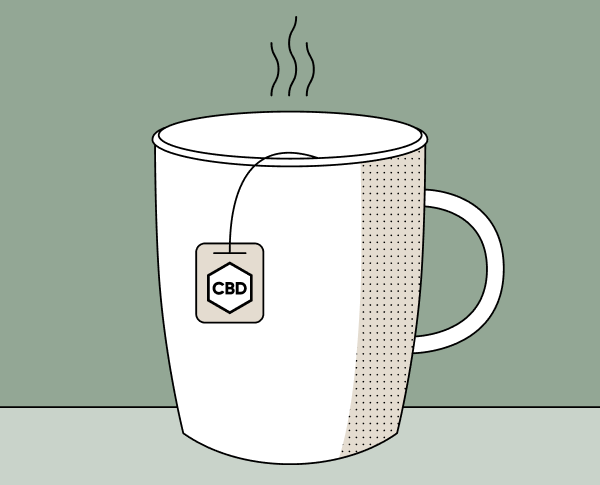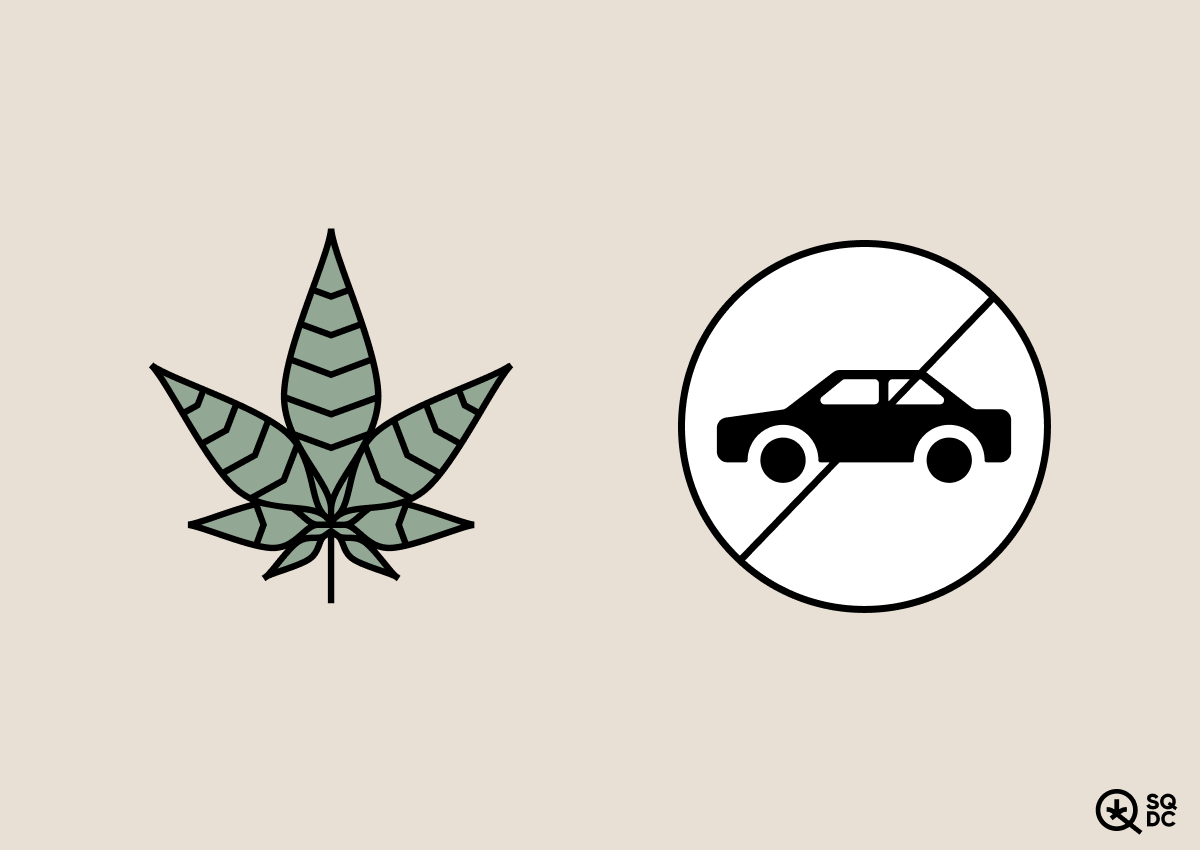What do we really know about CBD?
By SQDC.ca | Published on October 14, 2025
CBD (short for cannabidiol) has become a buzzword in the wellness space. You’ve likely seen it mentioned in conversations about stress relief, sleep support, or pain management, often presented as a gentler alternative to THC. With all the attention CBD gets, it’s easy to assume its benefits are well-established and guaranteed.
But the truth is more nuanced.

While there is genuine interest in CBD’s potential, scientific research is still limited, and many of the claims surrounding it are based more on early findings and personal anecdotes than on solid, long-term clinical evidence. As a result, expectations can sometimes become inflated, leading people to believe CBD can treat everything from insomnia to chronic pain to anxiety — when in reality, the evidence is still evolving.
Another layer of confusion comes from contradictory information and common misunderstandings, including the belief that CBD has no side effects or that it's completely unrelated to cannabis.
This article aims to provide a clear overview of what is currently known — and not yet known — about CBD’s effects on pain, sleep, and anxiety, as well as addressing important safety considerations.
What is CBD and how does it work?
CBD, or cannabidiol, is one of over a hundred cannabinoids found in the cannabis plant. Unlike THC (tetrahydrocannabinol) — the main psychoactive compound — CBD does not produce a “high.” That’s part of what makes it appealing to people seeking potential therapeutic effects without altered perception or euphoria.
How CBD interacts with the body
CBD interacts with a complex network of receptors in the body known as the endocannabinoid system (ECS), which plays a role in regulating various physiological functions.
What we don’t fully understand yet
There is still no scientific consensus on exactly how CBD produces its reported effects. For example:
- While some believe CBD may influence serotonin pathways (linked to anxiety and mood), this hasn’t been clearly proven
- The often-cited anti-inflammatory or neuroprotective benefits are promising but not yet conclusive in human studies
CBD remains a misunderstood compound, and while early findings are encouraging, more clinical research is needed before we can fully explain or predict its effects.
CBD and pain relief
One of the most common reasons people turn to CBD is for pain management. Many individuals report feeling relief after using CBD products. But what does the science say?
What we know so far
Some preliminary studies and anecdotal reports suggest that CBD may help reduce certain types of pain. However, these studies are still early-stage and often lack large-scale clinical validation.
What we don’t know yet
There is no definitive scientific evidence proving that CBD is an effective treatment for pain in all individuals or conditions. While some people experience relief, others may feel little to no difference.
In addition:
- Results can vary greatly from person to person
- Factors like dose, product quality, and method of use all play a role
- CBD should not be viewed as a replacement for prescribed pain treatments
Speak to a healthcare professional
If you're considering CBD to manage pain:
- Talk to your healthcare provider
- Be wary of marketing claims that promises “miracle” results
- Understand that CBD may offer support in some cases, but it’s not a cure-all
CBD and sleep
Many people use CBD in hopes of improving their sleep. But as with its potential role in pain relief, the science around CBD and sleep is still developing.
Can CBD help you sleep better?
Some users report feeling more relaxed or less anxious after using CBD, which may indirectly help them fall asleep.
However:
- These effects are often subjective
- Results are inconsistent across individuals
- There is no guarantee that CBD will work for everyone — or even at all
What research has yet to prove
CBD is not a recognized treatment for insomnia or sleep disorders. Most clinical studies:
- Are small or in early phases
- Combine CBD with other compounds (e.g., THC or melatonin), making it hard to isolate CBD’s effect
- Often rely on self-reported data, not objective sleep tracking
It’s not a sedative
CBD doesn’t act like a conventional sleep aid.
It’s not a sedative, and it won’t necessarily make you feel drowsy. Its impact on sleep, if any, tends to come from promoting a general sense of calm — which may help certain individuals unwind before bed.
CBD and anxiety
CBD is often promoted as a natural option for stress or anxiety — and while there’s growing interest in its calming potential, the science remains inconclusive. Some individuals report feeling more relaxed or focused after using CBD, but responses can vary widely.
Not a guaranteed solution
CBD is not a proven treatment for anxiety disorders. In some cases:
- Effects are subtle or absent
- Relief may depend heavily on dose and individual variations
- Other cannabinoids — especially THC — may worsen anxiety or trigger discomfort in sensitive individuals
Important: THC and anxiety
Many cannabis products contain both CBD and THC. While CBD is often associated with calming effects, THC may cause anxiety in certain individuals. It's important to be mindful of your personal sensitivity to THC when selecting products.
Mental health requires professional care
If you're struggling with anxiety or a related condition:
- Do not self-medicate with CBD without consulting a health specialist
- Be cautious of claims that CBD is a replacement for therapy or medication
- Consider CBD only as a complementary approach, and only if approved by a qualified healthcare provider
Possible side effects of CBD
While CBD is generally considered well tolerated by most people, it is not without potential side effects — especially when taken in high doses or alongside other medications.
Commonly reported side effects
Some individuals may experience side effects such as:
- Fatigue or drowsiness
- Dry mouth
- Dizziness or lightheadedness
- Low blood pressure
- Changes in appetite or digestion
These effects are usually mild and temporary, but they can be uncomfortable — especially if you’re not expecting them.
CBD and medication interactions
One important but often overlooked aspect of cannabis use is its potential to interact with other medications. CBD is no exception and can also affect how certain medications work.
It may alter the way your body responds to them, potentially increasing their effects or side effects.
If you're on any prescribed medication, always speak with a healthcare professional before trying CBD.
Sensitivity varies
Like all cannabinoids, CBD affects people differently:
- Some may feel relaxed or alert
- Others may feel nothing at all
- In rare cases, CBD can cause mild paradoxical effects like restlessness or irritability
That’s why it’s important to start low, go slow, and monitor your reaction — especially if it's your first time using it or if you're increasing your dose.
CBD is not THC: no “high”, but still psychoactive?
One of the biggest misconceptions about CBD is that it has no effect on the brain. While it’s true that CBD doesn’t cause a “high” like THC, that doesn’t mean it’s completely non-psychoactive.
What does “psychoactive” actually mean?
A psychoactive substance is one that affects brain function, influencing things like mood, perception, or consciousness. By that definition, CBD is technically psychoactive — but in a very different way from THC.
So while you won’t feel “stoned” or intoxicated from CBD, some users do report feeling:
- More relaxed
- Less anxious
- More mentally clear or balanced
Others may feel no noticeable effect at all, especially at lower doses.
In short: CBD isn’t intoxicating, but it’s not inert either. Its subtle impact on mood and brain chemistry still qualifies it as psychoactive.
Can you drive after taking CBD?
CBD is often promoted as non-intoxicating, which leads many to believe it's completely safe to use before driving. While CBD itself doesn’t impair cognitive function or reflexes the way THC does, the legal and safety implications are more complex than they appear.
What the law says in Canada
The Criminal Code prohibits driving while impaired, whether by alcohol, drugs, or a combination of both.
For cannabis, an offence can be issued at very low THC concentrations or if it's determined that cannabis was consumed and the driver fails a sobriety test administered by a trained officer.
But CBD isn’t THC… right?
Correct. While certain specific products, like pure CBD extracts, may contain only CBD, many others can include trace amounts of THC, or even substantial concentrations depending on their composition.
That means a CBD product that feels completely non-intoxicating may still lead to detectable THC levels in your blood.
Best practice: wait before you drive
To avoid legal or safety issues, since most CBD products contain trace amounts of THC, the law requires you to wait before driving or to avoid getting behind the wheel after using them.

Managing expectations and using CBD responsibly
CBD has generated a great deal of enthusiasm — and for good reason. It shows potential in areas like pain management, sleep support, and anxiety reduction
But it’s important to approach CBD with realistic expectations and an informed mindset.
What we know vs. what we don’t
- What we know: CBD interacts with the endocannabinoid system, is generally well tolerated, and may help with certain symptoms in some people.
- What we don’t: Conclusive scientific proof for most health claims. Individual results vary, and large-scale clinical trials are still underway.
CBD is not a miracle cure, and it’s not a substitute for professional medical care — including when it comes to chronic pain, sleep disorders, or anxiety-related conditions.
Use it safely
To reduce risk and increase your chance of a positive experience:
- Start with low doses and increase gradually
- Choose high-quality, legal products with clear labelling
- Do not drive after using CBD products that may contain THC
A mindful approach
Use CBD responsibly and with a full understanding of its limitations. Stay informed, stay cautious, and prioritize your well-being above the hype.
